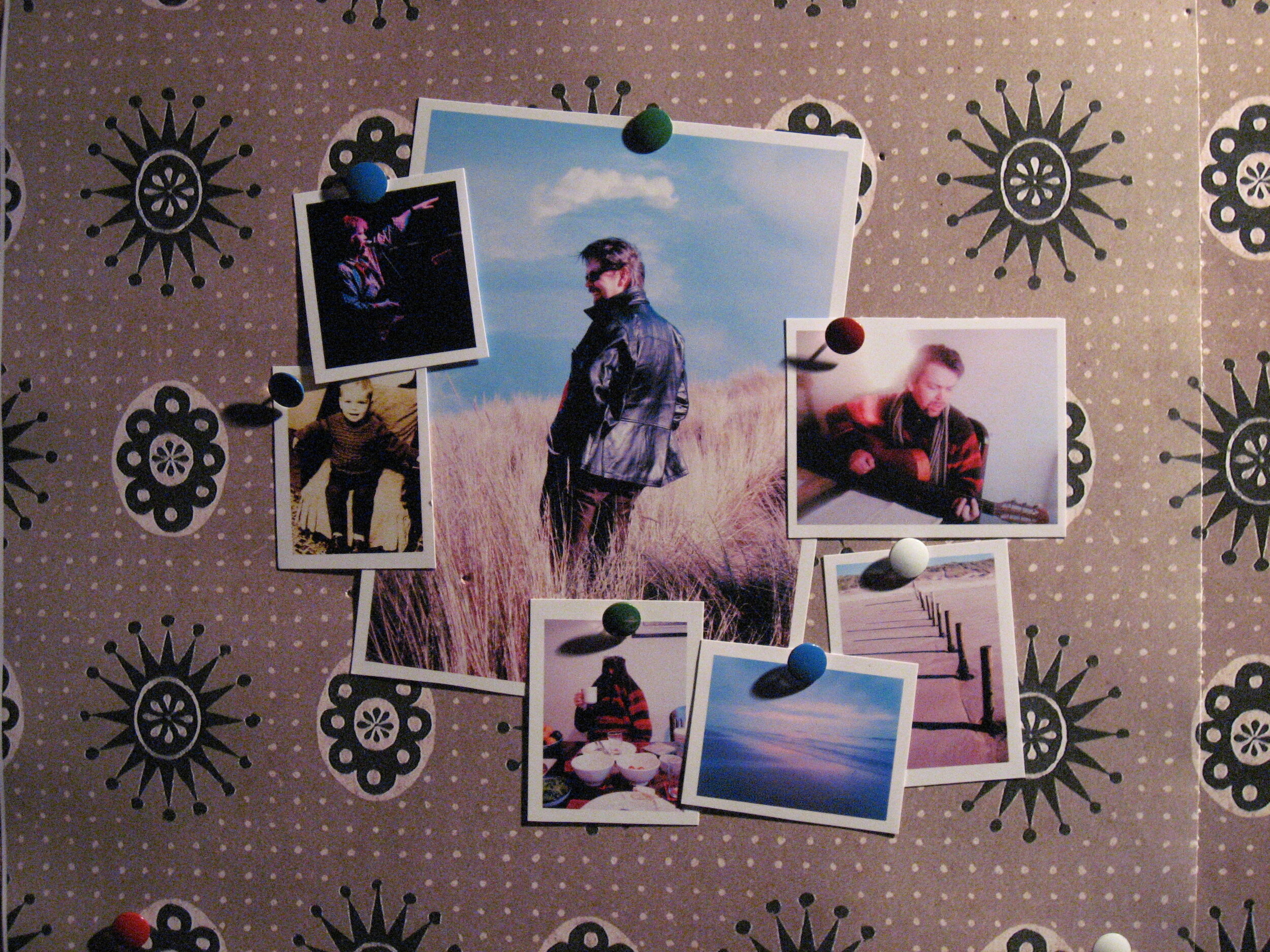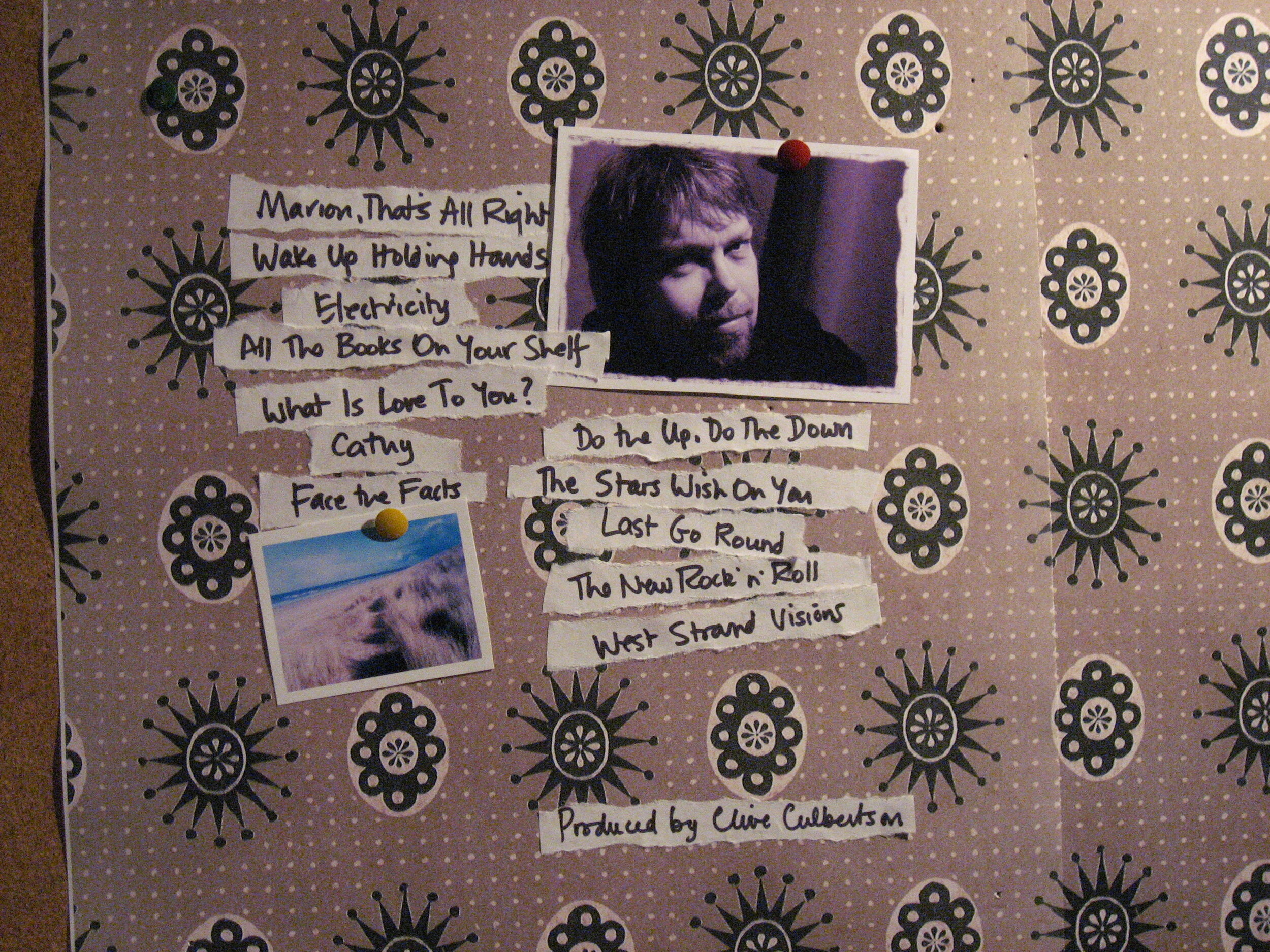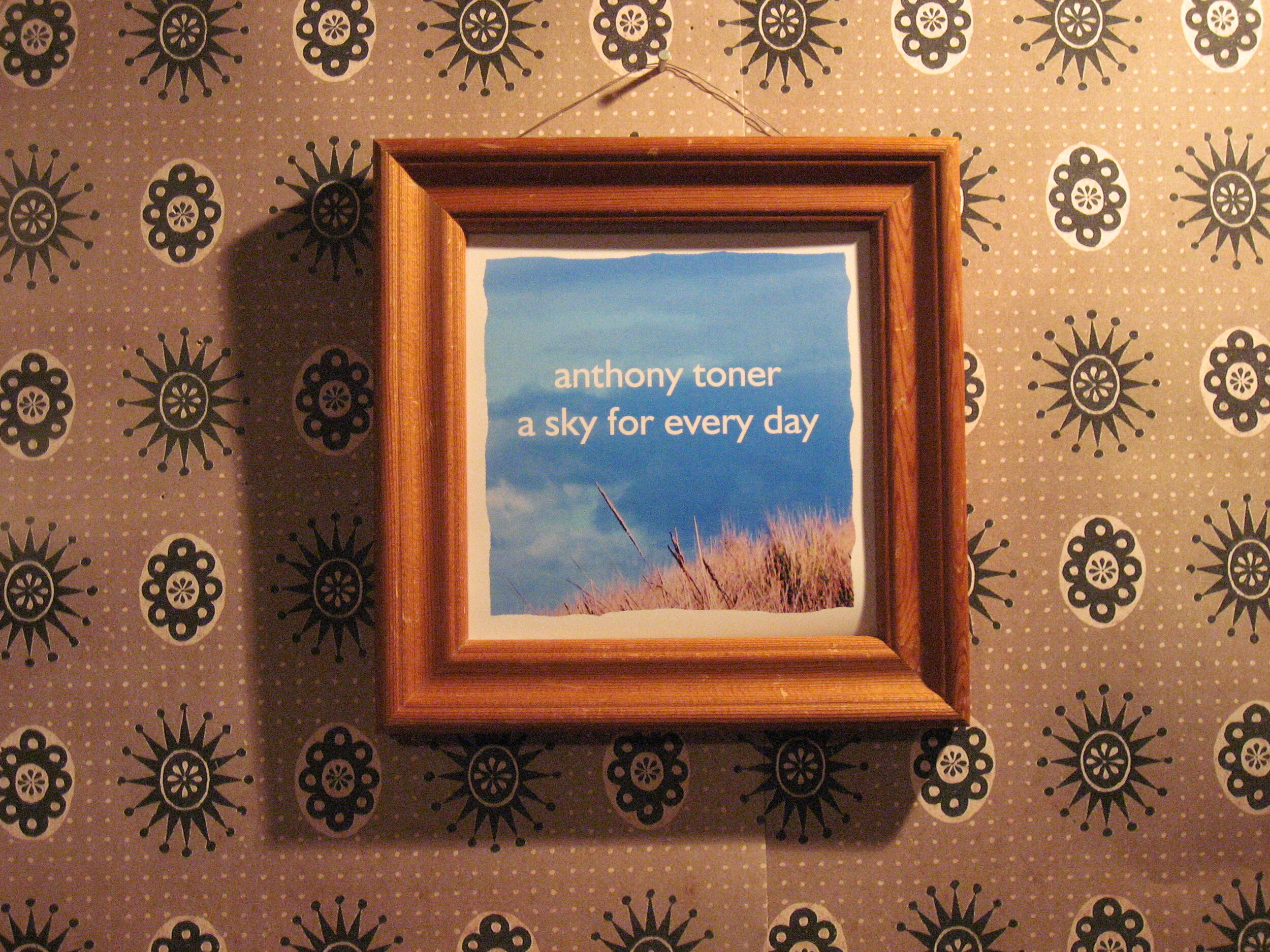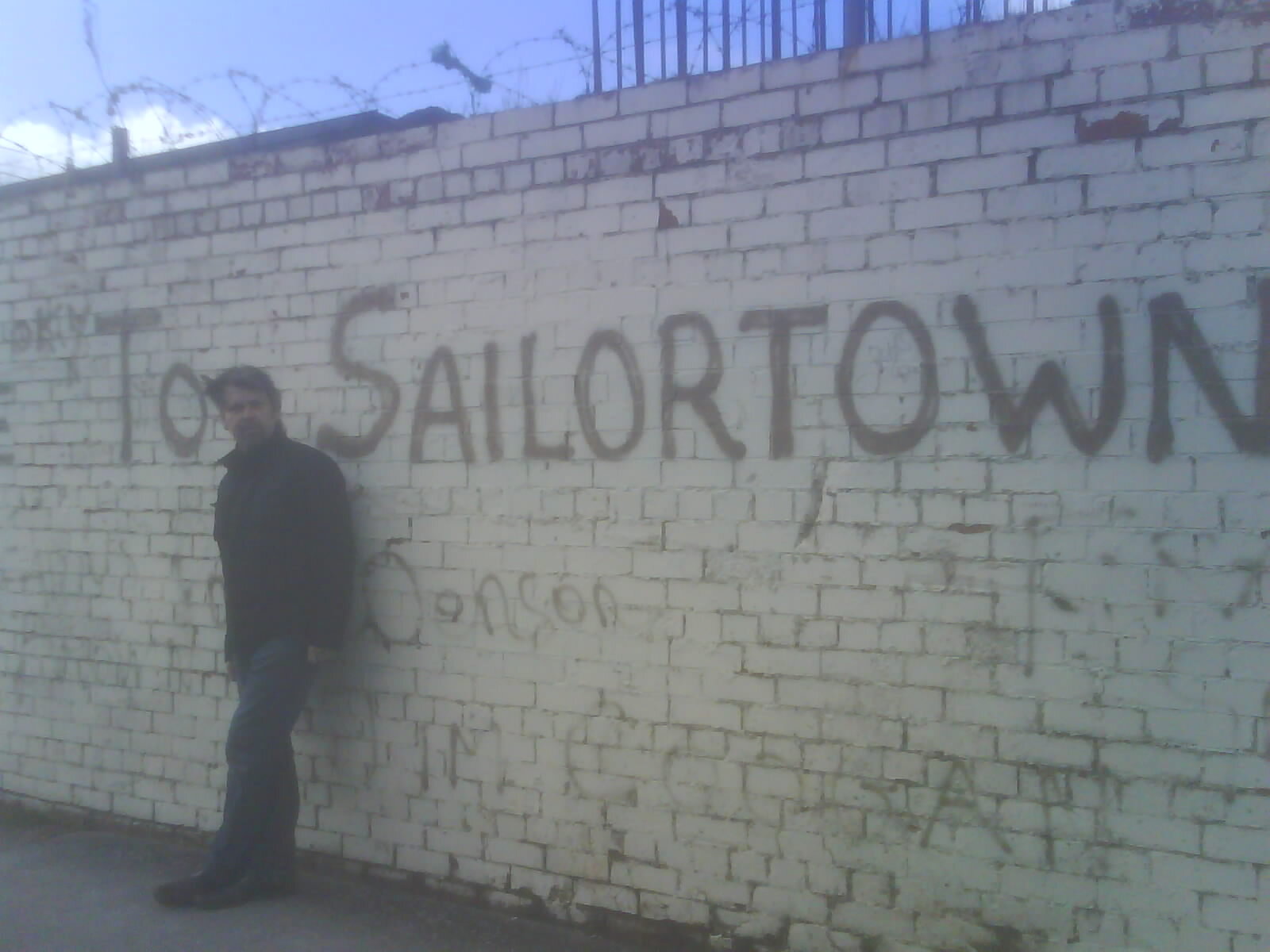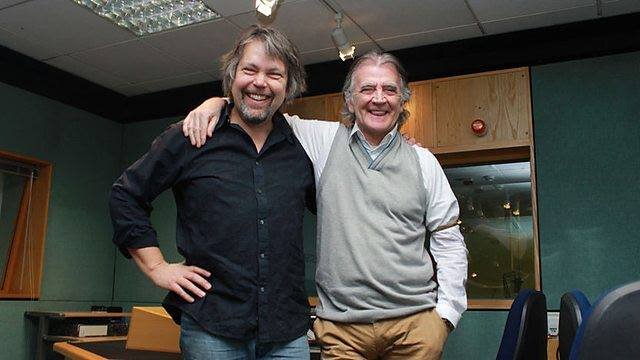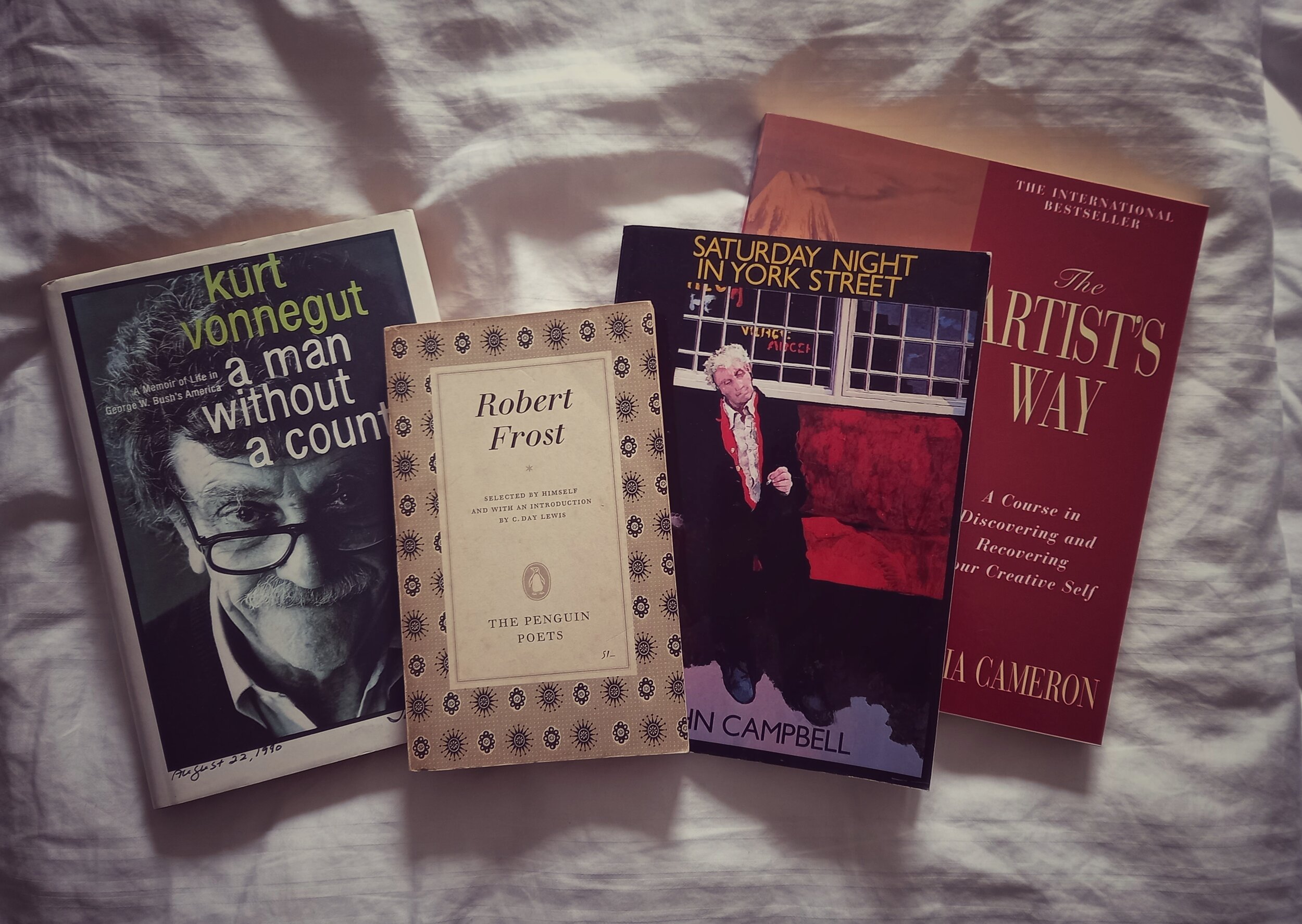(This post has been written to accompany the ‘reissue’ of the 2008 album on Bandcamp, where it’s available to stream - or download for £6. I’m intending a monthly series of Bandcamp reissues of all of the albums, over the course of the next year)
I had kind of torn apart my life and was starting to remake it by the time I gathered my lyric sheets and chord parts and went back in to Clive’s studio to record the songs that made up A Sky for Every Day. Six years had passed since the Eventually album, and in that time I had changed jobs – leaving journalism after seventeen years and moving into arts management – had completed a Masters Degree in Irish Literature.
I was a single man again by this stage - a decision that was mine, nothing more to be said about it. By day I worked at Flowerfield Arts Centre, and in the evenings I just walked until the sun went down, and then I went back to a house loaned to me by a dear friend and was mostly only used during the summer, and went to sleep – that autumn was wonderful, and I tramped the streets of Portstewart - the Cliff Walk, the Promenade, Harbour Hill - my head whirling with guilt, shame, anxiety (years later, when my father’s Alzheimer’s put him out on the road walking and walking, I could understand some of what was going on there – the act of putting one foot in front of the other sometimes feels like the only reliable response to the terrible uncertainty and instability between your ears). I went a deep brown from the sun and lost about two stone. Looking back I think I was living mainly on coffee and bananas.
In the process, I changed from being a songwriter throwing the shapes of an experienced life, and became a person experiencing the life. I set my plastic bag of clothes down in the living room of my friend’s home and looked at a cluster of Russian literature left behind from the summer visit – Turgenev, Chekhov, Gogol. ‘All the books on your shelf,’ I sang to myself, ‘tell you nothing’.
Some of the key texts of the time! Vonnegut, John Campbell and The Artist’s Way. And the Robert Frost Penguin collection with the pattern used for the artwork.
So the songs from the couple of years that led up to that album are more rooted in my own experience than the first collection – the lyrics feel like a kind of… making sense of what was going on, where I had come from.
Within a couple of years of this upheaval, I had regained some equilibrium. My relationship with Andrea had begun, and I had moved into her house in Millburn, Coleraine. Lots of long conversations at the dinner table, lots of beach walks. Lots of thinking about the process of making art, of what it means to be an artist. Of taking this process seriously, giving it time and space. I remember reading Julia Cameron’s The Artist’s Way, finding ways out of writer’s block, all kinds of new processes.
And I remember revisiting the work of Kurt Vonnegut - his memoir of life in George W Bush’s America, Man Without a Country, had just come out, and I started to re-read him, also discovering his earlier nonfiction. It was a voice that became extremely important to me: a wise uncle, full of mercy and gentleness and humour. It was just what I needed, I think.
And the songs began to come – ‘Electricity’ was inspired by a line in one of the Vonnegut novels, God Bless You Mr. Rosewater. ‘Cathy’ was inspired by another relationship break-up among my friends. ‘The Stars Wish on You’ and ‘Marion, That’s All Right’ were written for my daughter, who had been a solid rock during my wandering months, me suddenly discovering her filled with wisdom and restraint and compassion… All of which had, of course, been there the whole time.
‘Wake Up Holding Hands’ was the first song for Andrea. ‘Last Go Round’ was a song inspired by the old uncles on my mother’s side of the family, many of them members of the Orange Lodges around Coleraine’s rural outskirts. I remember having a flash, an image of an old Orangeman on his deathbed, thinking back on his life in Coleraine. It was so strong I could point to the little house on Brook Street where I imagined him lying.
When there were twelve songs, I booked some time in the studio with Clive, autumn through winter 2007, we assembled the musicians and got started. This time round we were working with Rod McVey on piano and Hammond organ, a wonderfully empathetic and huge hearted player. Clive had discovered a young drummer from Coleraine called Roger Patterson who was incredibly gifted – sensitive and powerful and deeply soulful in his approach, and his drums and cymbals sounded amazing. We also had Tony Philips (who died recently) on drums on a couple of songs. Johnny Scott played guitar, too, but I was becoming more confident as a player at this stage, so a lot of the electric guitar on this one is me. Linley Hamilton played some stately, elegant trumpet on ‘All the Books on Your Shelf’.
By this stage, Clive had made improvements to the studio – the first album had been caught on old-fashioned reel-to-reel, but this one was recorded on Fostex hard drive, so everything was digitally sampled, and sounded more crisp and detailed as a result.
I don’t remember many memorable incidents through the recording process, it feels in memory like a fun, exciting, painless process… apart from the process of recording ‘Wake Up Holding Hands’. As the recording developed, I began to think it had real potential as a single – it had a Beatles feel to it, enhanced by a twin slide guitar solo that sounded very George Harrison… or Todd Rundgren, maybe. The drums were amazing, it had three part harmonies, it had percussion, Rod had put a Wurlitzer piano part on there, Johnny Scott had played electric rhythm in a deliberately Traveling Wilburys approach… there were two acoustic guitars on it - the track just kept getting bigger. I remember Clive and I listening to it over and over and wondering – something’s missing. What does this NEED?
I had a brainwave – I was friendly with Dick Glasgow, who ran the Black Nun Folk Club and was known to be a keeper of old instruments. I asked if he had an autoharp – I could imagine the zing of a big autoharp chord on this thing. I drove out to Ballintoy and picked it up, brought it back to the studio – the noise that it made was amazing, but it was out of tune and I hadn’t asked for the tuning wrench. So I tuned it with a pair of pliers and we recorded it. It was ready to mix.
Hang on, I said – wouldn’t it be great if we had a sound effect at the end? There was a lyric: ‘all the little birds remember the words and they start to twist and shout’. I had some recordings of bird song at home, so I went and got that, and we put it over the last cymbal crash and the fade. Cute.
By the end we had used up almost every channel on Clive’s desk – it was a GIANT thing to mix, but by God he did it. When we were mastering, I said to him – what if we took that last crash and the sound of the birds, and REVERSED it, and put it on the front of the song? So we did that, as well. We listened to the finished thing - and were both CONVINCED it was a hit record in the making. This would be a hit in fourteen countries, we were sure of it. I was looking at the walls and wondering where the Gold Disc would go. I took it out and played it to some friends for their opinion. ‘That’s nice,’ they said. ‘Yeah, lovely. Is that you on the slide guitar? Nice.’
So I don’t know why it wasn’t a hit – maybe it’s not that good a song, after all… the only thing I can say is it sound better when you play it loud.
Diary entry for September 14, 2007 - the gig at the Rotterdam with the Ronnie Greer Band that inspired the song Sailortown. (the previous Friday, Yap Yap Yap, the covers band I was in with Clive and Adrian Culbertson, Paul Coates and Robert Wilson, were booked for the Harbour Bar in Portrush)
There was a late addition to the list. By this point I had started playing guitar with the Ronnie Greer Blues Band, and had been gigging with them for about six months. On September 14, we played a gig at The Rotterdam Bar in Pilot Street, in the Sailortown district of Belfast. I arrived early and set my amp up on the stage, and I remember it was a sunny, warm evening and there were kids outside in the sunshine, drinking wine and playing guitars in the beer garden. The whole image and the feel of that part of the city surrounded me. In the mix was also the collection of Sailortown poems by John Campbell, Saturday Night in York Street.
Andrea and I were staying that night with our friend Nuala at her home in the south of the city, and the next morning I got up early, went downstairs and lifted her old Eko acoustic guitar and the first chords of what became the song ‘Sailortown’ came to me. ‘Me and Elaine, we’ve been hanging around,’ I sang, ‘in what was once Sailortown’.
So that song was actually knocking around during the late days of the recording of A Sky for Every Day. I didn’t trust the song at all – I thought the lines were too long, that the whole thing needed a trim. So I sat on it, thinking, it’ll be ready for the next album (it’s interesting that it felt like I was already committed to this life, thinking that this was the start of a series of albums).
In mid-December I was invited by radio presenter Alan Simpson to come on his afternoon Radio Ulster show to sing two songs - a Christmas song and something of my own, and I thought, why not give ‘Sailortown’ a go, and see what the reaction is…?
I told him I didn’t have a title, and just launched into the thing, live on air. And I remember that when I came to the line about the UVF and the IRA, Alan looked to the producer’s window with alarm. But no-one complained about that. The reaction was really strong – REALLY strong. Wow, I thought, maybe this IS ready. I called Clive and said I had another song, could I come back in January…?
There was no budget to bring everyone back in to play, so we just did it ourselves, on January 8 (see diary entry, right) – myself on guitars, Clive on bass and piano. There was a little drum machine thing on there, but I went to Robert McSeveney’s drum shop and bought a pair of brushes, and played the brushed snare drum part myself, on an old snare that Clive had in the recording room.
In keeping with my new life as an artist, I had the idea of designing the album myself by photocopier, and I spent hours making collages out of ripped up pieces of handwriting (image gallery below), using Pritt Stick to fix them to a design from an old Penguin collection of Robert Frost poems. It didn’t really work out, and I fell back on Damian Smith from Digital Page again to tidy it up – some elements of the original design stayed, though, and Andrea’s pictures from Castlerock beach are still there. It’s interesting to see the original front and back cover ideas – and a list of songs that didn’t have ‘Sailortown’ even named.
The sensible direction seemed to be releasing ‘Sailortown’ as the single, and in February, the publicist James Rollins gave a copy of the song to Gerry Anderson, and he started to play it on his morning show on Radio Ulster. People started to request it and he was playing it on an almost daily basis, with Ralph McLean and Cherrie McIlwaine also playing it, and other songs from the album – I was invited to play as part of the line-up for the Belfast Nashville Songwriters Festival at the end of that month, and with my fingers crossed and my little nervous heart hammering in my chest, it felt like I was on my way.
To listen to the album and download, visit my page at Bandcamp HERE.
